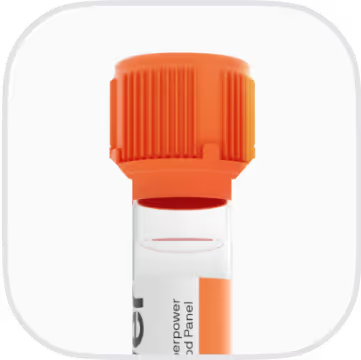What are Malnutrition biomarkers
Malnutrition biomarkers are blood-based indicators that show how well your body is supplied with, absorbing, and using nutrients. They capture three core stories: protein-energy status, micronutrient sufficiency, and the impact of illness on nutrition. Liver-made blood proteins reflect protein reserves and turnover (serum albumin, transthyretin/prealbumin, transferrin, retinol-binding protein). Micronutrient measures point to specific deficits that affect energy production, blood formation, immunity, and tissue repair (iron/ferritin, vitamin B12, folate, vitamin D, vitamin A/retinol, zinc). Signals of whole-body stress help distinguish true deficiency from disease-related shifts (C-reactive protein). Taken together, these tests detect nutritional risk before major changes in weight or strength, pinpoint which nutrients are lacking, and indicate whether the gut is absorbing and the liver is distributing them effectively. They also track how the body responds to feeding, supplements, or treatment, allowing timely adjustments to care. In short, malnutrition biomarkers translate the body’s nutrient supply and demand into actionable information.
Why is blood testing for Malnutrition important?
- Check for malnutrition and key vitamin deficits impacting energy, nerves, and bones.
- Spot protein shortfalls with albumin and total protein, reflecting intake and synthesis.
- Clarify low albumin from inflammation or fluid shifts, not just poor intake.
- Explain fatigue, anemia, or tingling by flagging B12 or folate deficiencies.
- Protect fertility and pregnancy with adequate folate and B12 for fetal development.
- Protect bones and immunity by identifying low vitamin D and guiding supplementation.
- Guide diet or supplements and track recovery as levels normalize over time.
- Best interpreted with your symptoms, CBC, CRP, and sometimes follow-up tests for B12.
What insights will I get?
Malnutrition blood testing provides a window into how well your body is meeting its fundamental needs for growth, repair, and daily function. Adequate nutrition supports energy production, immune defense, cognitive clarity, cardiovascular stability, and reproductive health. At Superpower, we assess malnutrition risk and status by measuring Albumin, Total Protein, Vitamin D, Folate, and B12—each a key indicator of your body’s nutritional reserves and metabolic balance.
Albumin is the main protein in blood plasma, reflecting both protein intake and the body’s ability to synthesize proteins. Total Protein measures the sum of all proteins in the blood, including albumin and globulins, offering a broader view of nutritional and immune status. Vitamin D is essential for bone health, immune modulation, and cellular signaling. Folate and B12 are B vitamins critical for DNA synthesis, red blood cell formation, and neurological function.
Healthy levels of these biomarkers indicate that your body has the building blocks it needs for tissue repair, stable metabolism, and robust immune responses. Low albumin or total protein may signal protein-energy malnutrition or underlying illness. Deficiencies in vitamin D, folate, or B12 can impair bone strength, blood cell production, and nerve health, increasing vulnerability to infection and chronic disease.
Interpretation of these results depends on context. Factors such as age, pregnancy, acute or chronic illness, and certain medications can influence biomarker levels. Laboratory methods and reference ranges may also vary, so results are best understood alongside your overall health picture.







.avif)



.svg)





.svg)


.svg)


.svg)

.avif)
.svg)










.avif)
.avif)
.avif)


.avif)
.avif)




.svg)




.avif)


